GETTING TO KNOW OUR NEIGHBORS: PREPARING FOR POLLINATOR WEEK with COLORADO'S PPAN
- Jennifer Jewell
- Jun 12, 2025
- 7 min read
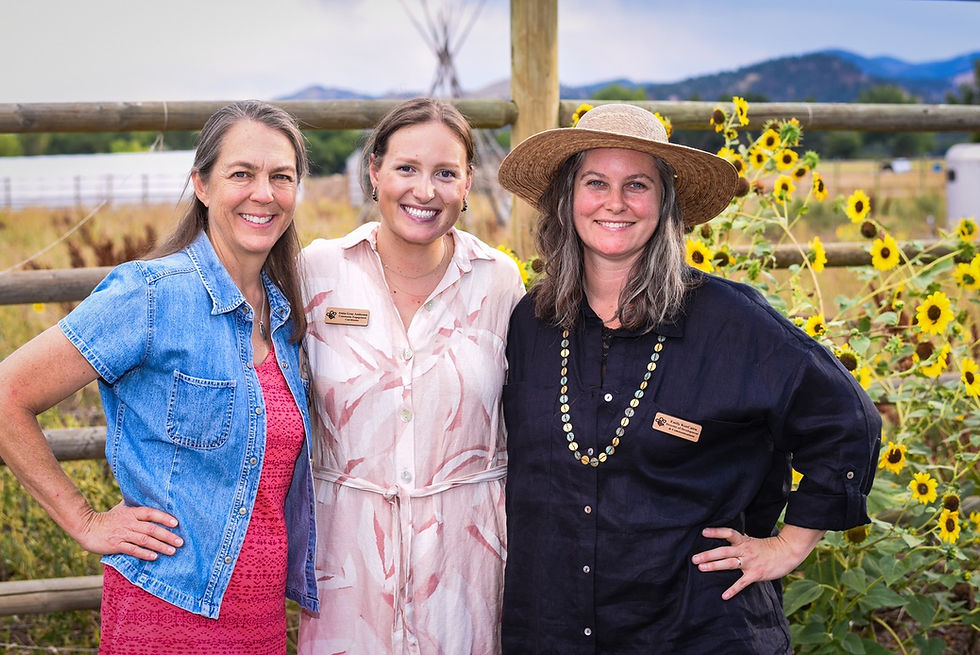
Every year since 2007 when the US Senate passed sanctions declaring it, the third week of June is celebrated as National Pollinator Week. It is no accident that this is the same week as the Summer Solstice – when many pollinators reach their peak.
Since 2017, however, the state of Colorado has celebrated June as National Pollinator Month and this week we hear more, celebrate wins, and focus on the work remaining with two members of People and Pollinators Action Network–when we're joined by Joyce Kennedy and Emily KenCairn of PPAN –envisioning a world with healthy, sustainable ecosystems where people and pollinators can thrive now and for generations to come.
PPAN promotes pollinator-friendly land management and landscaping practices through community education, engagement, and advocacy to preserve biodiversity and safeguard public health. They beautifully envision a world with healthy, sustainable ecosystems where people and pollinators can thrive now and for generations to come. They conduct their world-improving work at the grassroots, municipal, and state levels, advocating for policies and practices that reduce or eliminate the use of pesticides and create and connect swaths of pollinator-safe habitat with the intent of reversing the drastic decline of pollinator populations.
Joyce is PPAN’s Executive Director, and Emily is the Director of Communications and Development – both women are Gardeners with a capital G. Their policy work, their program work, their planting work all cultivate a world with healthy, sustainable ecosystems where people and pollinators can thrive now and for generations to come.
SO importantly, PPAN is – as we should all be – active at the grassroots, municipal, and state levels to advocate for policies and practices that reduce or eliminate the use of pesticides as well as to create and connect swaths of pollinator-safe habitat with the intent of reversing the drastic decline of pollinator populations—upon which our very existence depends.
Some important links:
The license plate order page and our homepage take priority. The Habitat Fund won't re-open for the next round until January, but here’s that page for the
Pollinator profiles and study findings/takeaways: https://www.peopleandpollinators.org/native-pollinator-study
This page lists bills that have passed, including the CDOT one and the all important invertebrates are now wildlife one! As well as the license plate bill, etc: https://www.peopleandpollinators.org/our-successes
We would love Coloradans to take a pollinator-safe pledge and put their pollinator habitats on our map, and join our email list, so we can track connected corridors and habitat deserts: https://www.peopleandpollinators.org/pollinator-pledge
Pollinator Garden Resources: https://www.peopleandpollinators.org/resources
PPAN videos and webinars resources: https://www.peopleandpollinators.org/videos
Follow PPAN Online:
And on Instagram:
Hummingbird photo by Scott Severs; bumble bee and the hawk moth photos by Adrian Carper. All photos courtesy of PPAN, all rights reserved.
If you enjoyed this program, you might also enjoy these
Best of CP programs in our archive:
JOIN US again next week, when we settle in for the Summer Solstice happening on June 20th. It’s Midsummer's night, and this week we celebrate Night Magic: adventures among glow worms, moon gardens, and other marvels of the dark with Leigh Ann Henion. That's right here, next week. Listen in!
Cultivating Place is made possible in part by listeners like you and by generous support from
supporting initiatives that empower women and help preserve the planet through the intersection of environmental advocacy, social justice, and creativity.
Thinking out loud this week...
Hey, it's Jennifer—
I loved how both Joyce and Emily associated their idea of cultivating place well
with community – through community work, but also through this idea of getting to know our neighbors. We all long for this sense of belonging, to home places with all their lives…..what would your neighborhood be without the summer bees, butterflies, flowers and trees specific and known so well by you and your human family?
Even when we don’t think we know it, Nature's gifts still impress upon us all – which is part of why we Garden, or get outdoors to favorite spots, whether it’s a picnic in the park in the shade of a tree or deadheading and feeding all the spring flowers now past and the summer flowers coming on.
And in this engagement, we get to know our community (plants, pollinators, people), our CP Neighbors as it were.
AND THIS is what CP Communing is all about – sharing time and faces, checking in on how are spirits are holding up, how our Garden or Cultivating lives are helping us, helping the greater community. In real time, swapping seeds of ideas on how to amplify this….we've only had two CP
Communings so far, and I have been refueled by each one.
To see and share stories and ideas, frustrations and small paths to solutions, with all of you is why I am here and do what I do.
I am looking forward to seeing all of you who can make it again to our pre-summer solstice CP COMMUNING on June 17th at 9 am Pacific, 12 noon Eastern. We gather by Zoom, and while the gathering is free, registration is required as space is limited to encourage conversation and well, you know, getting to know each other…
Join us if you can – but even if you can’t make this one – never forget we are in this together, this belief that Gardening and Gardeners grow our world better is so many ways – and we can continue to amplify and celebrate that no matter what – from food and flowers shared, soil, water, and climate considered sacred, from beauty and prayers offered generously – we are in this
together.
I was ALSO really struck in this week's conversation by the importance and the downstream beneficial consequences of that one scientific study PPAN sponsored to help determine the baseline state of pollinators, which illuminated so much of where and how to design programs and policy work from there.
Science, real data collected, and open access communication – goes along way my friends. Don’t forget it.
In Public Growing Announcements this week:
As I Mentioned earlier OUR NEXT Quarterly CP COMMUNING GATHERING is next Tuesday June 17th at 9 am Pacific, find links to register HERE or in our bio on Instagram. Space is limited so please register early,
registration is free but donations are gladly accepted. This CP COMMUNING Ben Futa will be our featured speaker focusing in on biodiversity – what it is, what it means to us specifically, and how it shows up or doesn’t in our garden lives, and how to nurture more of it in all the ways: ecologically, socially, culturally, spiritually, politically, economically even.
In other PGAs, let’s stick with our pollinator theme:
People and Pollinators Action Network is hosting a 2025 Big Day of Bugs will be taking place at Denver Botanic Gardens on June 27th , and the great work of the National Pollinator Partnership, who helped codify National Pollinator week back in 2007, invites everyone to Join the them and their partner, Electric Power Research Institute for the 2025 Pollinator Power Party between June 16-20!
This event, the “world’s largest party celebrating pollinators”, will include business perspectives, community and culture aspects, and “get it done” tips and lessons. Sign up with the Pollinator Action Team to receive the Daily Pollen emails containing everything you need to know to party with us.
They are also hosting a bioblitz and they need us all! To join iNaturalist and
and contribute your pollinator observations to their group effort under Pollinator Power Party Bioblitz!
.
Also, over at the National Wildlife Federation, they also celebrate pollinators all
month long in June and they have great resources on the impact of even the
smallest pollinator gardens. For individuals with small outdoor spaces like balconies or courtyards, pollinators are one of the most accessible wildlife to support and attract. Simply by planting native blooming species, you will likely find bees, butterflies, and even hummingbirds visiting your plants! Learn more about creating a small space wildlife garden and even using native plants in container gardens in our new resources.
Finally – if you need a project and your garden is not signed and certified as a
habitat, this is a project worth your while. There are several groups on national
levels such as National Wildlife Fdeeration and Audubon who have certification
programs, but also local ones, such as my local certified neighborhood habitat
group. Most of these groups give you great criteria to work towards, and then the sign helps to celebrate your achievement AND share information on it with your community of humans walking or driving by. It’s a win-win for you, your garden, your human AND pollinating neighbors…
WAYS TO SUPPORT CULTIVATING PLACE
Cultivating Place is a co-production of North State Public Radio, a service of Cap Radio, licensed to Chico State Enterprises. Cultivating Place is made possible in part listeners just like you through the support button at the top right-hand corner of every page at Cultivating Place.com.
The CP team includes producer and engineer Matt Fidler, with weekly tech and web support from Angel Huracha, weekly communications support by Sheila Stern and Carley Bruckner, transcripts by Doulos Transcription, and regular guest hosting by Abra Lee and Ben Futa. We’re based on the traditional and present homelands of the Mechoopda Indian Tribe of the Chico Rancheria. Original theme music is by Ma Muse, accompanied by Joe Craven and Sam Bevan.
SHARE the podcast with friends: If you enjoy these conversations about these things we love and which connect us, please share them forward with others. Thank you in advance!
RATE the podcast on iTunes: Or wherever you get your podcast feed: Please submit a ranking and a review of the program on Itunes! To do so follow this link: iTunes Review and Rate (once there, click View In Itunes and go to Ratings and Reviews)
DONATE: Cultivating Place is a listener-supported co-production of North State Public Radio. To make your listener contribution – please click the donate button below. Thank you in advance for your help making these valuable conversations grow.
Or, make checks payable to: North State Public Radio - with Cultivating Place in subject line
and mail to: Cultivating Place
PO Box 37
Durham, CA 95938


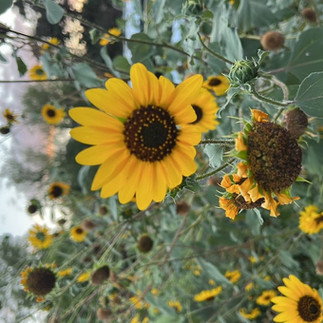

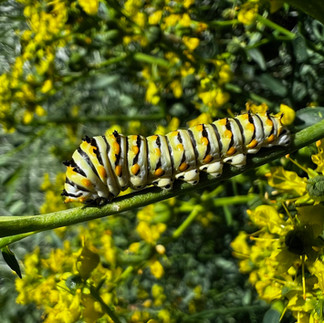
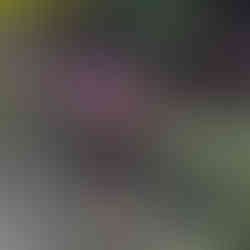

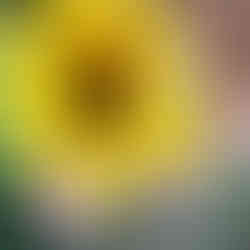




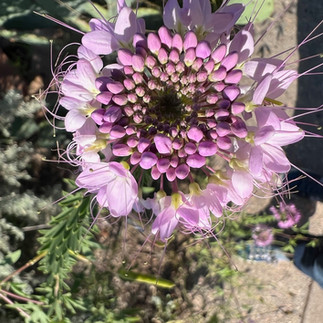
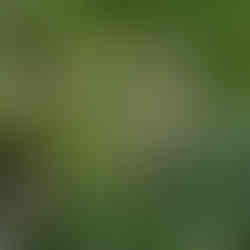

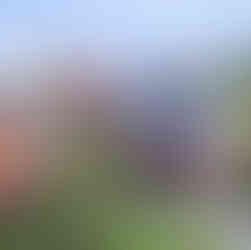







Comments